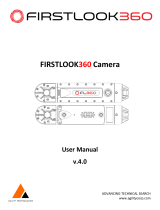
7
VQT1T39
• 2 [PARTY]...................................... 67
• 3 [CANDLE LIGHT]........................ 67
• : [BABY1]/; [BABY2].................. 67
• í [PET]...........................................68
• ï [SUNSET] ...................................68
• 9 [HIGH SENS.] .............................68
• ô [HI-SPEED BURST]....................68
• [FLASH BURST] ......................... 69
• 5 [STARRY SKY] ........................... 69
• 4 [FIREWORKS] ............................70
• 6 [BEACH] ..................................... 70
• 8 [SNOW]....................................... 70
• 7 [AERIAL PHOTO] ....................... 71
• [PIN HOLE] .................................71
• [FILM GRAIN] .............................71
Motion Picture Mode............................... 72
Useful Functions at
Travel Destinations ................................. 73
• Recording which Day of the
Vacation and the Location of
the Vacation ..................................... 73
• Recording Dates/Times at
Overseas Travel Destinations
(World Time)..................................... 75
Using the [REC] Mode Menu .................. 76
• [FILM MODE] .............................. 76
• @ [PICTURE SIZE]........................... 78
• A [QUALITY]...................................79
• [INTELLIGENT ISO] ................... 80
• > [SENSITIVITY]............................80
• [ISO LIMIT SET]..........................81
• = [WHITE BALANCE] .................... 81
• C [METERING MODE]....................83
• [AF MODE] .................................83
• [PRE AF] .....................................86
• [AF/AE LOCK] ............................ 86
• [I.EXPOSURE]............................87
•
[MULTI. EXPO.].......................... 87
• ) [DIGITAL ZOOM]........................ 89
• [STABILIZER]............................. 89
• [MIN. SHTR SPEED] .................. 90
• B [AUDIO REC.] ...............................90
• F [AF ASSIST LAMP]................... 90
• [FLASH SYNCHRO] ................... 91
• [EXT. VIEWFINDER] .................. 91
• [CONVERSION] ......................... 92
• U [CLOCK SET]............................... 92
Advanced (Playback)
Playing Back Pictures on the Dual Display
(Dual Play) ..............................................93
Playing Back Pictures in Sequence
(Slide Show)............................................94
Selecting Pictures and Playing them
Back ([CATEGORY PLAY]/
[FAVORITE PLAY]) ................................96
• [CATEGORY PLAY] ......................... 96
• [FAVORITE PLAY]............................ 96
Playing Back Motion Pictures/
Pictures with Audio .................................97
• Motion pictures ................................. 97
• Pictures with audio............................ 97
Creating still pictures from a
motion picture ......................................... 98
Using the [PLAYBACK] mode menu....... 99
• [CALENDAR] .............................. 99
• [TITLE EDIT]............................. 100
• [TEXT STAMP] ......................... 102
• Q [RESIZE]...................................103
• [TRIMMING].............................104
• [LEVELING] ..............................105
• ? [ASPECT CONV.] .....................106
• N [ROTATE]/
M [ROTATE DISP.]....................... 107
• Ü [FAVORITE]...............................108
• O [DPOF PRINT]........................... 108
• P [PROTECT]............................... 110
• B [AUDIO DUB.] ............................. 111
• S [COPY] ....................................111
Connecting to other equipment
Connecting to a PC...............................113
Printing the Pictures..............................115
• Selecting a single picture and
printing it.........................................117
• Selecting multiple pictures and
printing them...................................117
• Print Settings ..................................118
Playing Back Pictures on a
TV Screen ............................................. 119
• Playing back pictures using the
AV cable (supplied) ........................ 119
• Playing back pictures on a TV
with an SD Memory Card slot......... 120
• Playing back on the TV with
component socket .......................... 121
EB-DMC-LX3_eng.book 7 ページ 2008年7月14日 月曜日 午後7時38分




















